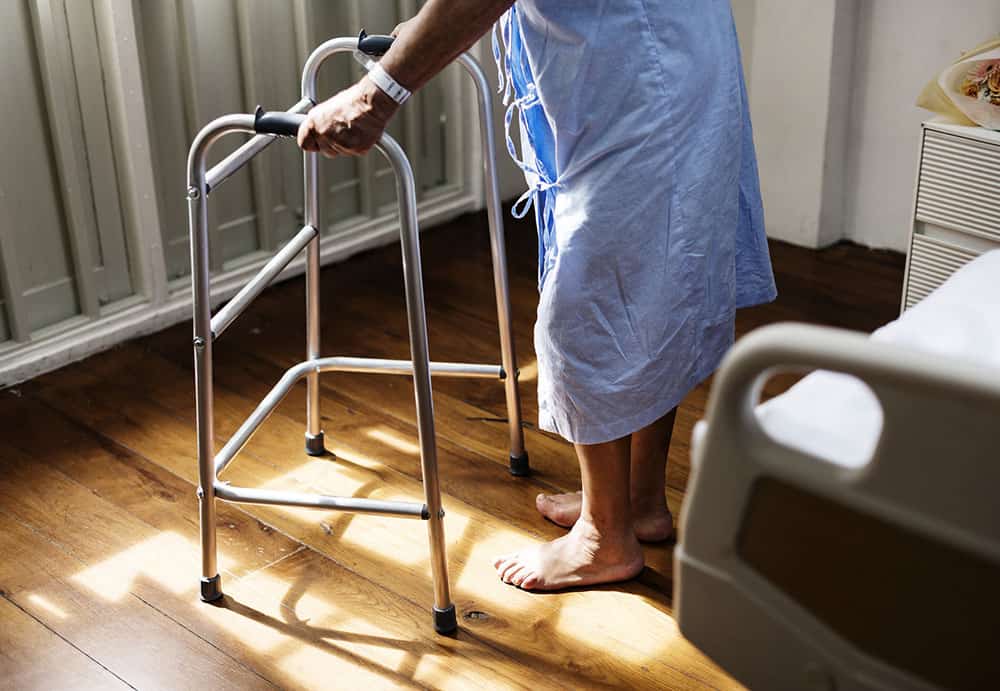14 people wiped out financially by care bills daily as NHS-led social care rumours spread
One year on from Boris Johnson’s pledge that no one would have to sell their own home to fund their care, Age UK has warned that 14 people per day are exhausting their assets to pay care bills.
In England in 2018/19, the latest year for which figures are available, 5190 people were classified as ‘self-funders with depleted funds’ – a category of individuals Age UK describes as having run down their savings and assets until they had virtually nothing left due to care costs.
The number represents a sharp increase of more than a third (37 per cent), compared to the previous year.
According to Age UK’s analysis, 167,000 older people and their families were required to fund their own care because they failed to meet the means-test that qualifies individuals for free or subsidised support.
The total spent by people exceeded £7 billion (£7,390,084,000) during the 12 months since the prime minister took office.
Age UK published the findings on the 23rd July – exactly one year after the PM stood on the steps of No 10 Downing Street and promised to fix social care, vowing no one would have to sell their home in the future to fund their care.
Caroline Abrahams, Charity Director for Age UK said: “Chronic underfunding put social care on its knees before COVID-19 came roaring in so it was in no position to withstand the battering the virus dealt out. Tragically, there have been an estimated 30,000 excess deaths of older people living in care homes during the pandemic, a shocking number that shames us all.
“When he became prime minister, Boris Johnson promised to fix social care and make sure no one would have to sell their home to pay for it. Now, after all the loss and suffering caused by the pandemic, it is more important than ever that he follows through.”
An Economic Affairs Committee report into social care funding published last year found that around £8 billion a year will be required over 2019/20-2020/21 to return social care quality and access to 2009/10 levels. In the wake of the coronavirus, councils have also said they need an additional £6 billion to meet the extra costs caused by the pandemic.
Alongside the publication of the care funding analysis, Age UK submitted a petition with over 100,000 signatories which calls on the government to fix social care and make it free at the point of use.
“With 14 people a day being ruined due to sky high care bills and self-funders spending more than £7 billion on care in a year, it’s clear that the unlucky individuals who need care face far too high a price. The obvious solution is for us all to share the risk of developing care needs by paying into a national fund, like we do with the NHS,” continued Caroline.
“More than a hundred thousand members of the public signed our petition before the pandemic, calling on the government to act, and it’s a fair bet that if we ran the same exercise now there would be even more support. Public awareness of what care does and why it matters has been greatly raised during the pandemic, as has admiration for the work paid care staff do – often for only poverty pay.”
Recently, there has been growing speculation that the government may bring social care under the control of NHS England, with the Guardian reporting on 27 July that Downing Street has brought in Camilla Cavendish, former policy chief under David Cameron, to assist in finalising proposals to fix social care.
A potential change in where and how social care funding is allocated could have a significant impact on the mobility and access industry, transforming how assistive technologies and assistive tech services are commissioned and delivered.
The rumours of a merger between social care and the NHS were denied on Monday night by the Department of Health and Social Care (DHSC).
“As part of a necessary process of national atonement, so far as social care is concerned, it’s time for a new deal which transforms it into the decent, reliable public service we are all entitled to expect, with care staff getting a fair return for their labours,” finished Caroline.
“Nothing can bring back all those older people living in care homes whose lives were so sadly cut short by the virus but at least we can say ‘never again’ and show we really mean it by agreeing the funding and reforms that, in all honesty, we should have had more than a decade ago.”
https://thiis.co.uk/14-people-wiped-out-financially-by-care-bills-daily-as-nhs-led-social-care-rumours-spread/https://thiis.co.uk/wp-content/uploads/2019/11/dementia-care-funding-money.jpghttps://thiis.co.uk/wp-content/uploads/2019/11/dementia-care-funding-money-150x150.jpgGovernment & Local AuthoritiesNHSReports & ResearchSector NewsAge UK,Boris Johnson,Camilla Cavendish,Caroline Abrahams,Department for Health and Social Care,Economic Affairs Committee,NHS England,PM,Prime Minister,social care,social care funding,social care reformOne year on from Boris Johnson’s pledge that no one would have to sell their own home to fund their care, Age UK has warned that 14 people per day are exhausting their assets to pay care bills. In England in 2018/19, the latest year for which figures are available,...Calvin BarnettCalvin Barnettcalvin.barnett@bhta.comAuthorTHIIS Magazine


